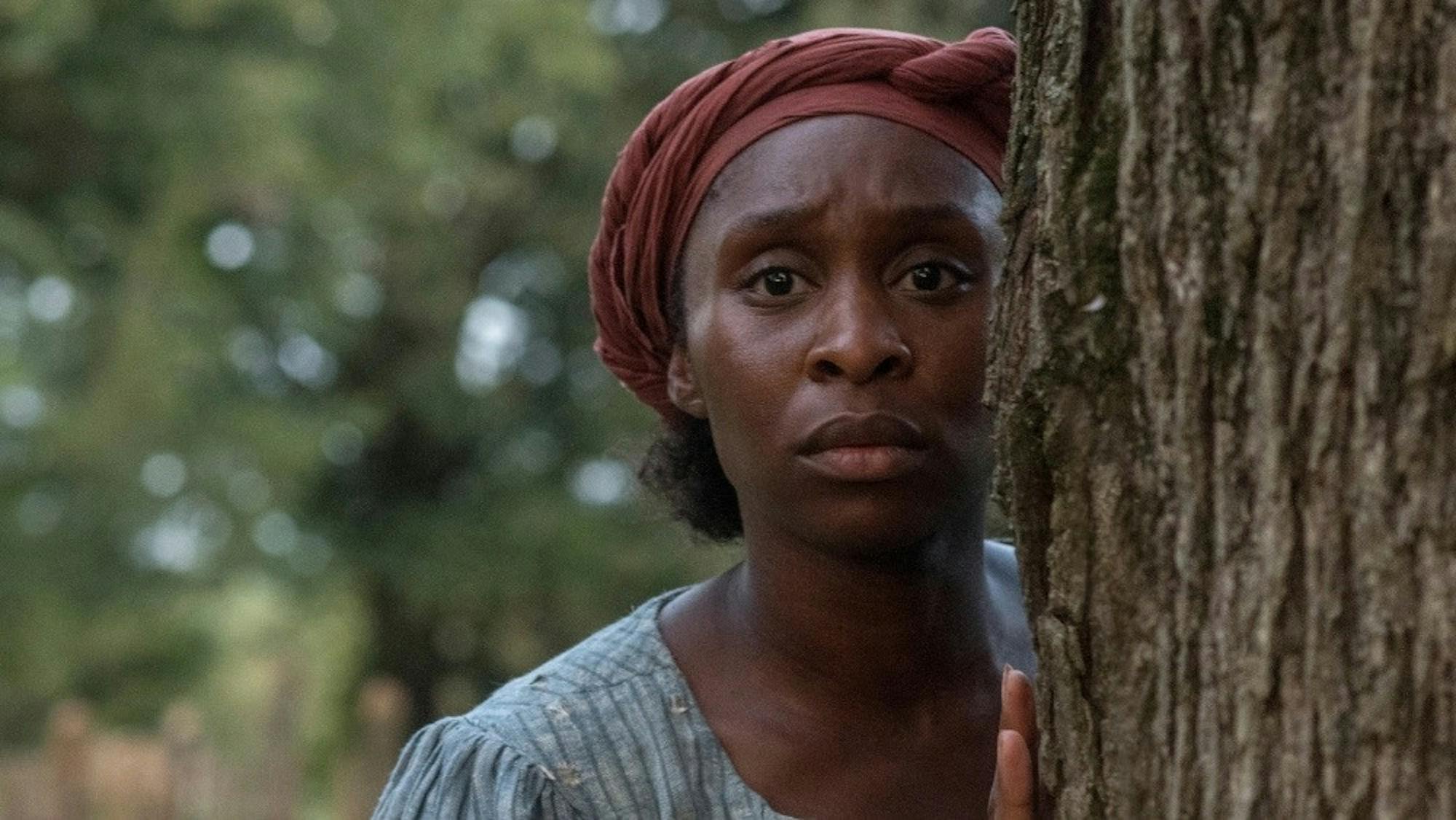
Too often, women’s stories — and particularly those of women of color — are minimized in our history textbooks or left out altogether. Most Americans are familiar with Harriet Tubman, the famed Underground Railroad conductor, but American heroes like her are seldom given as much attention as presidents of questionable character like Andrew Jackson, a blatant racist, or Thomas Jefferson, who owned slaves. “Harriet” is the inspiring tale of a woman who deserves to be celebrated.
“Harriet” focuses on the extraordinary life of Tubman (Cynthia Erivo), the abolitionist and suffragist, and her escape from a Maryland plantation. With the exception of a few fictional characters and dramatized incidents, the movie does a solid job of sticking to its core source material. Over the course of her time as a conductor of the Underground Railroad, she helps hundreds of slaves escape to the North. When she learns she is to be sold, she makes the harrowing journey to Philadelphia on her own. There, she connects with abolitionist William Still (Leslie Odom Jr.) and stays with a freeborn woman named Marie Buchanon (Janelle Monáe). Because Tubman is concerned about the safety of her family, she decides to return to Maryland to help them escape. Although William advises against it, Tubman proceeds on her mission and — at great risk to herself — returns with a number of people. She goes back time and time again. Her intelligence and decisive nature makes her a strong leader who effectively guides people through dangerous situations and leads them to freedom.
“Harriet” is one of the most moving films I’ve seen in a long time. The vivid cinematography makes you feel as though you’re traveling with Tubman through Southern thickets and up north. Erivo gives a compelling performance as Tubman, portraying her as a strong-minded, vulnerable and emotional woman. There are stretches of time in the film without much dialogue when Erivo’s facial expressions alone manage to effectively convey Tubman’s thoughts. Erivo made the audience feel like they could see into Tubman’s mind. That being said, many other actresses could also have done the role justice. Erivo, who is Nigerian-British, faced significant backlash for being cast as an African American heroine. The casting choice resurged conversations about African Americans portraying Africans and vice versa, and how that complicates larger conversations about representation in film today. Scrutiny of Erivo was particularly stoked by her disparaging remarks toward African Americans and consistent portrayals of African American female characters in “The Color Purple” and “Bad Times at the El Royale.” For a role this central to African American history to not be given to an African American was a poor decision. It seems like a commercially driven choice that took the opportunity of a major role from an African American actress.
I appreciated how several moments were directly lifted from Tubman’s accounts of her experiences, my favorite being when she examines her hands in the sunlight after she crosses the border into Pennsylvania. The soundtrack is a stirring mix of poignant spirituals and a rousing score by Terence Blanchard that adds to the experience of these moments.
One thing that “Harriet” fails to address is the physical pain Tubman worked through during her travels. Though the movie portrays her narcolepsy (caused by an injury as a child), it neglects to truly show how much pain she overcame. That part of her true story is particularly inspirational for people who are disabled, and including it would have serviced the film. The film’s portrayal of slavery on the big screen is chilling. While it doesn’t portray the true extent of the brutality of American slavery, it gets close enough at moments to convey the constant fear, pain and dehumanization endured by enslaved African Americans. The image of a woman choked by a white man in front of her young child while the man’s mother coldly stands by is shocking.
Overall, “Harriet” manages to capture Tubman’s mettle on camera with its rousing score, vivid cinematography and the underlying strength of its source material. After the movie was over, I stayed in my seat for a moment, just processing the magnificence of her story. I think that’s the power of biopics: live action adaptations brings life to moments that history books cannot always capture. African American history is essential to understanding the modern United States. The racial hatred portrayed in “Harriet” is shocking, yet unfortunately still relevant. Tubman’s example is a powerful reminder of human potential, courage and why we must address racial injustice today.
Grade: A





